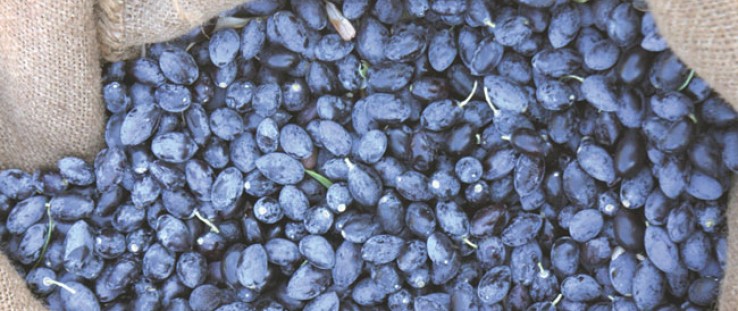 Newly harvested olives. The sooner the olives are pressed into oil, the lower the acidity and the better the quality of the oil.
credit: Canaan Fair Trade
Newly harvested olives. The sooner the olives are pressed into oil, the lower the acidity and the better the quality of the oil.
credit: Canaan Fair Trade
 Newly harvested olives. The sooner the olives are pressed into oil, the lower the acidity and the better the quality of the oil.
credit: Canaan Fair Trade
Newly harvested olives. The sooner the olives are pressed into oil, the lower the acidity and the better the quality of the oil.
credit: Canaan Fair Trade
With USAID assistance, Palestinian olive oil is flowing to international markets, providing a boost for struggling growers.
The fragrant and healthy oil extracted from the fruit of the olive tree, indigenous to the rocky hills of the West Bank, has long been important to the Palestinian people and their culture. Some historians even argue that the first cultivation of olive trees may have taken place in the area now comprising the West Bank and Israel. However, frequent droughts and inefficient growing practices have led to inconsistent quantity and quality, making it tough for farmers to realize profits from selling the fruit and the products derived from it on the world market.
Today, about 200,000 Palestinian farmers support their families by growing olives. Most of the olive products are produced for local consumption, but Palestinian olive oil is fast gaining international recognition for its unique aroma and flavor.
USAID is working with Palestinian farmers to improve the quality of the olives and make the methods used throughout the production process more sustainable, equitable and environmentally friendly. Newer, more efficient methods should boost incomes in a region where rural families often struggle just to get by. This project comes on the heels of an eight-year-old effort that was among the first to acquaint Western palates with Palestinian olives.
A Pioneer of Fair Trade in the West Bank
In 2004, Nasser Abufarha, an entrepreneur from Burqeen in the northern West Bank, was looking for a way to boost the local olive oil market, and came up with a winning combination: authentic organic Palestinian olive oil coupled with the desire of Western consumers for responsibly produced goods. To bring the local oil to international dinner tables, he established Canaan Fair Trade, a company that processes, packages and markets the organic olive oil produced by artisan farmers throughout the West Bank.
“We are not just making a bottle of olive oil. We are working on the relationship between the socially ethical consumer and the Palestinian farmer producing the oil,” said Abufarha.
This unique concept has made Canaan the largest exporter of fair-trade and organic Palestinian olive oil to Europe and the United States—while providing a sustainable income for more than 1,700 farming families. Canaan’s Estate Olive Oil is highly prized by gourmets around the world, even at a cost of $15 for a small 12.7 fluid ounce bottle. Farmers traditionally make approximately 18 Israeli shekels (about $4.50) per kilogram when they sell their oil locally. With Canaan, each farmer gets about 24 Israeli shekels ($6) per kilogram—an almost one-third increase in earnings.
But Abufarha believes his company goes even further: “We go beyond being fair to farmers. We also affect social change by organizing the farmers into cooperatives. This increases interaction between the producers and stimulates the overall culture of olive oil production.”
Currently, there are 43 farmers’ fair trade cooperatives and nine women’s cooperatives focused specifically on empowering rural women to become economically successful. The members of the cooperatives support each other, while Canaan provides them services to improve their products. Through the cooperatives, the farmers benefit from collective pressing that enables them to press smaller quantities of olives on a daily basis, leading to higher-quality oil with lower acidity, as well as other shared benefits. In this way, the olive farmers, who usually produce around 60 kilograms of olive oil a week, can double their production.
Improving Production Methods
Improving the harvesting and production process is an important part of the work Canaan does with the farmers. And this is an area where USAID’s assistance to West Bank agriculture has helped make a measurable difference. USAID has invested in training the olive producers and improving growing methods to increase yields and to cultivate products of a high enough standard to compete internationally.
Recently, Canaan, in partnership with the Palestinian Center for Agricultural Research and Development, participated in an agricultural pilot project supported by USAID. In an olive grove near Nablus, 300 trees were divided into designated plots. During the course of a year, the different plots received specific amounts of organic liquid fertilizers and supplementary irrigation, as well as improved pre-and post-harvest handling processes. At the same time, a control group of olive trees was cultivated using traditional methods with no additional fertilizers or irrigation.
Related Content
At the end of the season, the targeted olive trees produced fruit twice the weight and size of the control group, doubling the volume of olive oil per tree. In the current season, USAID will help 80 farmers to apply these best practices to produce international standard olive oil.
“USAID’s assistance to olive farmers helps them increase the quantity and quality of the oil they produce, and is part of a larger economic growth initiative to bolster the Palestinian economy by connecting it with external markets,” said Michael Harvey, USAID’s mission director for the West Bank and Gaza.
Local farmers have produced olive oil for thousands of years. Yet ensuring that the Palestinian olive oil industry continues to thrive and can compete internationally requires adopting a Canaan-style model, including the new methods piloted with USAID, to increase yields and produce a high-quality oil.
“The business model that Canaan has created is exciting,” says Denis Gallagher, chief of party of USAID’s Compete Project, which aims to make agriculture and other main economic sectors in West Bank/Gaza more competitive. “We want to replicate this approach in other agriculture production processes throughout the Palestinian territories. In a sense, Canaan is setting a standard and creating an incentive to others to create a higher-quality product.”
Pairing Time-Honored Tradition with 21st Century Marketing
Caanan’s Nasser Abufarha believes that marketing and packaging must tell the story of this region’s olive crop to appeal to customers willing to pay top dollar for organic products with an impressive pedigree.
“We sell products that come from this land and share an ancient narrative. The terrain is hilly and rocky, and olive trees grow slowly on terraces carved on the side of the mountain, the way they were cultivated a few thousand years ago,” explained Abufarha. “This setting allows biodiversity and sunlight, leading to healthier olives and better tasting olive oil.”
This message, combined with the fair-trade production methods, has proven its appeal to thousands of international customers who choose Canaan fair-trade olive oil over other big name olive oil brands. Today, Canaan supplies its oil to large retailers like Whole Foods Market in the United States and Sainsbury’s in the United Kingdom.
Abufarha has worked hard to create international marketing networks for this distinctive Palestinian product. But Canaan has been able to boost its sales even further by participating in the 2010 and 2011 Fancy Food Show in New York, the largest specialty food fair in North America. At the show, local producers and chefs are able to showcase their products to an audience of over 40,000 people, including representatives of trade and consumer media outlets.
But there is a lot more that can be done to increase sales and profits for farmers in the region. Canaan Fair Trade currently exports 500 tons of organic virgin olive oil a year, but the company hopes to reach 2,500 tons in the coming years.
The hope is that this substance, which the poet Homer famously called “liquid gold,” will continue to serve as a steady, renewable resource supporting not just healthy diets but also a healthy economy for the Palestinian population.







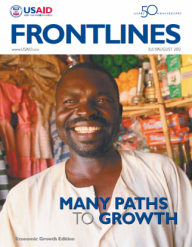

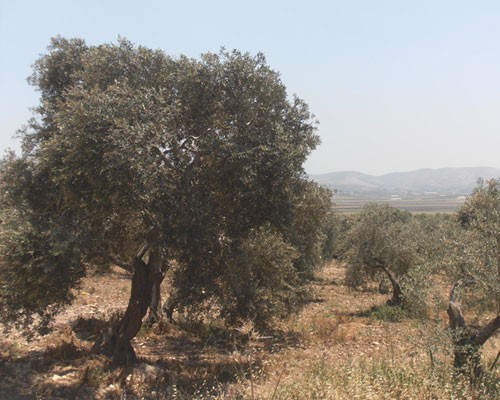
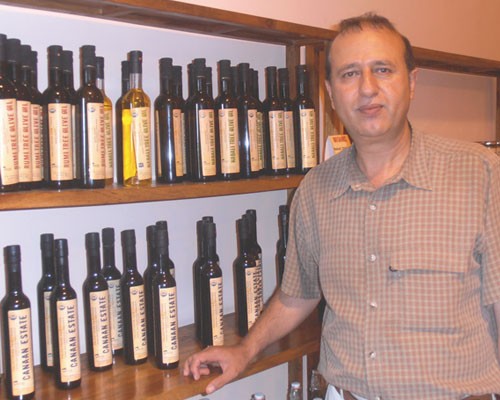
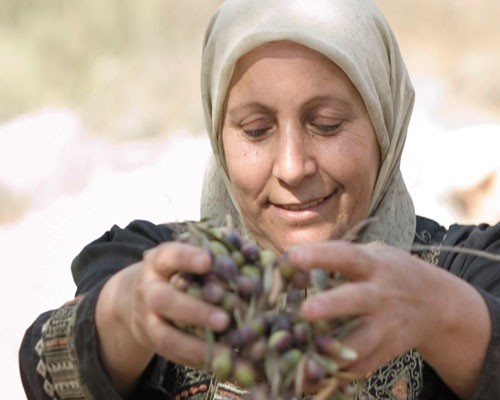
Comment
Make a general inquiry or suggest an improvement.